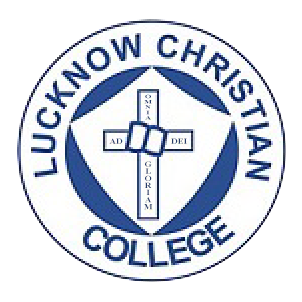- Home
- Brief History
The Lucknow Christian College was started as a humble school which was established in the Husainabad area of the old city in 1862. The Husainabad School House was established by Rev. James Hager Messmore. It has a glorious history as a small Institution embarked on its beautiful educational journey. The school established at Husainabad was started by Rev. Messmore, a pioneering academician and missionary from the United States of America. Since the Husainabad area was prone to floods and was very densely populated, in 1871 a new property was purchased in Inayat Bagh with an aim to set up a day boarding school. Meanwhile, the school at Husainabad was shifted to Victoria Street, in Chowk area of the old city. The Inayat Bagh property was used as a day boarding school which was started in 1878. It was the first day boarding school started in North India, however, the property was not big enough to expand it as a big College. In 1877 and 1888 the Centennial School (which was raised to High School in 1882) and Reid Christian Intermediate College were established respectively. The Reid Christian Intermediate College came into existence in 1888 and in 1889 it procured permission to start the degree classes in Arts and Science. It was initially affiliated to the University of Calcutta which in 1922 was transferred under the Canning College which was later known as the University of Lucknow. In 1878 another property was purchased in the Qaiser Bagh area opposite the Kothi Roshan-Ud-Daula or the Kothi Qaiser Pasand. Finally in 1883, a property suitable enough for the institution was purchased in Golaganj which was named as the Reid Hall. This building currently houses the Commerce Faculty and the Department of English from the Degree College on its first floor whereas the ground floor and adjoining fields house the College of Physical Education which is also a unit of the Lucknow Christian College.
Gradually, new teaching staff was hired and in a few years the Institution gained popularity and it started attracting students from central and northern states of India. Several students also came from places as far as West Bengal, Gujarat and Rajasthan.
Despite facing great difficulties, the College grew by leaps and bounds. The number of students kept on increasing every passing year. There were forty students in 1877 which increased to 53 in 1878, 110 in 1879, 125 in 1880, 184 in 1881, 311 in 1882 and 400 in 1883. Later the Lucknow Christian College was expanded into six separate units. Though the college received its affiliation to run the B.A. and B.Sc. course in 1889 but for lack of students it became functional only in 1891. Rev. W. A. Mansell was appointed in the College as the first regular faculty member in the year 1889.
The foundation stone for a new College building was laid on August 06, 1891. Sadly, Rev. B.H. Badley, the man who actually laboured for the new building, passed away on Nov. 20, 1891. One of the blocks, which now houses the Botany, Zoology and the Mathematics Departments of the Degree College and some portion of the Intermediate College as well, was named after Rev. Badley as the Badley Block.
Rev. Mansell was thereafter appointed the Principal of the College at the annual session of the North India Conference in January 1892. In the same year Nathaniel Jordan became the first student, who after completing his P.G., was appointed as a faculty member in the Department of English in his own alma mater. Rev. Mansell meanwhile proposed that the name of the College be changed to Reid Christian College but after one year it was decided to retain the name Lucknow Christian College. In 1894 Rev. D. L. Thoburn was appointed as a teacher in the English Department.
Rev. C. L. Bare was appointed as the Principal of the College in 1897. The turn of the century brought immense growth for the College. In 1902 the Alumni Association was established. The first meeting of the Association was held on June 26, 1902 in which Mr J. Devdasan was elected as the first President and Mr. J. R. Chitamber was elected as the first Secretary.
In 1903 the government of the United Province showed unusual interest in the College and sent 74 clerks from various government offices including collectors and staff from the courts to receive training in a special course in short hand and type writing. These government employees ever granted three months of special leave to complete this training programme. The College was later given a grant of Rs. 1500 to purchase more equipment for training more clerks and also extra grant to increase their teaching faculty. In 1905 the honourable Lieutenant Governor of the United Province Sir James John Digges La Touche visited the College. In 1905-06 the Annual Collegian was started. In the following years, the College showed immense progress. During this period, O.C. Hostel and Fairfield Hall were constructed along with the C.L. Bare Hostel. Between the years 1913 and 1921 the adjacent property towards the North of the campus was acquired. Two new play grounds were opened for the students and two new science blocks were also built covering to the huge demand in science courses.
Meanwhile, for better functioning and due to growing number of students, the middle school and high school were separated. A new school building was constructed in Inayat Bagh named as Warne Hall. The middle school was now known by its old name Centennial School.
In 1921, when the University of Lucknow come into being, it was suggested that two members of staff from the College be shifted as faculty members of the University. J. J. Cornelius joined the University in the Department of Philosophy and Rev. E. M. Moffet became the first Dean of the Faculty of Commerce but continued his work in the College. The classes for the commerce students from the University were taken in the Warne Hall building. But as the strength of the students increased to 75, the University decided to shift the classes to the University campus. Rev. Moffet was unwilling to give additional services to the University so he resigned and continued his services in the LCC High School.
In 1922, Rev. Jaswant R. Chitamber became the principal who was also the first alumni to hold the prestigious office. As the University of Lucknow came into being, it took over the degree classes. The B.Sc. classes were restored under the Lucknow Christian College in 1946 followed by the B.A. Classes Ten years later in 1956. The Faculty of Commerce was reintroduced in the year 1973. In 1932 Teachers Training course was introduced which now functions as the Christian Training College in the Warne Hall building in Inayat Bagh Campus. It runs the B.Ed. course under the affiliation of the University of Lucknow.
In the same year, Mr. E. W. Ted Mumby, an Olympic coach and a pioneer physical education teacher of North India, established the College of Physical Education which is currently run from the Reid Hall Campus.
In 1976, the College was selected by the University Grants Commission (UGC) for the College Science Improvement Programme (COSIP) and the College Humanities and Social Sciences Improvement Programme (COHSSIP) in 1976 and 1977 respectively to bring about qualitative improvement in teaching at the undergraduate level. In 1979, Diploma in Physical Education (D. P. Ed.) Department was upgraded to Bachelor of Physical Education (B. P. Ed.).
In 1995, UGC sponsored vocational courses viz., Computer Applications for B.Sc. students and Advertisement, Sales promotion and Sales Management for B. Com. students, were introduced. In 2017, the subject Computer Applications was replaced by Computer Science subject.
The College was upgraded to a P.G. level in 1996 with Post Graduate programmes being introduced in the Physical Education, English and Chemistry Departments under the self-finance scheme. In 1998 the Department of Statistics was also added under the self-finance scheme.

Jason Response
Education Assistant

Jason Response
Education Assistant

Jonquil Von
Teaching Assistant

Piff Jenkins
Teacher

Brian Cumin
Team Leader

Hanson Deck
Education Assistant

Alan Fresco
Teacher

